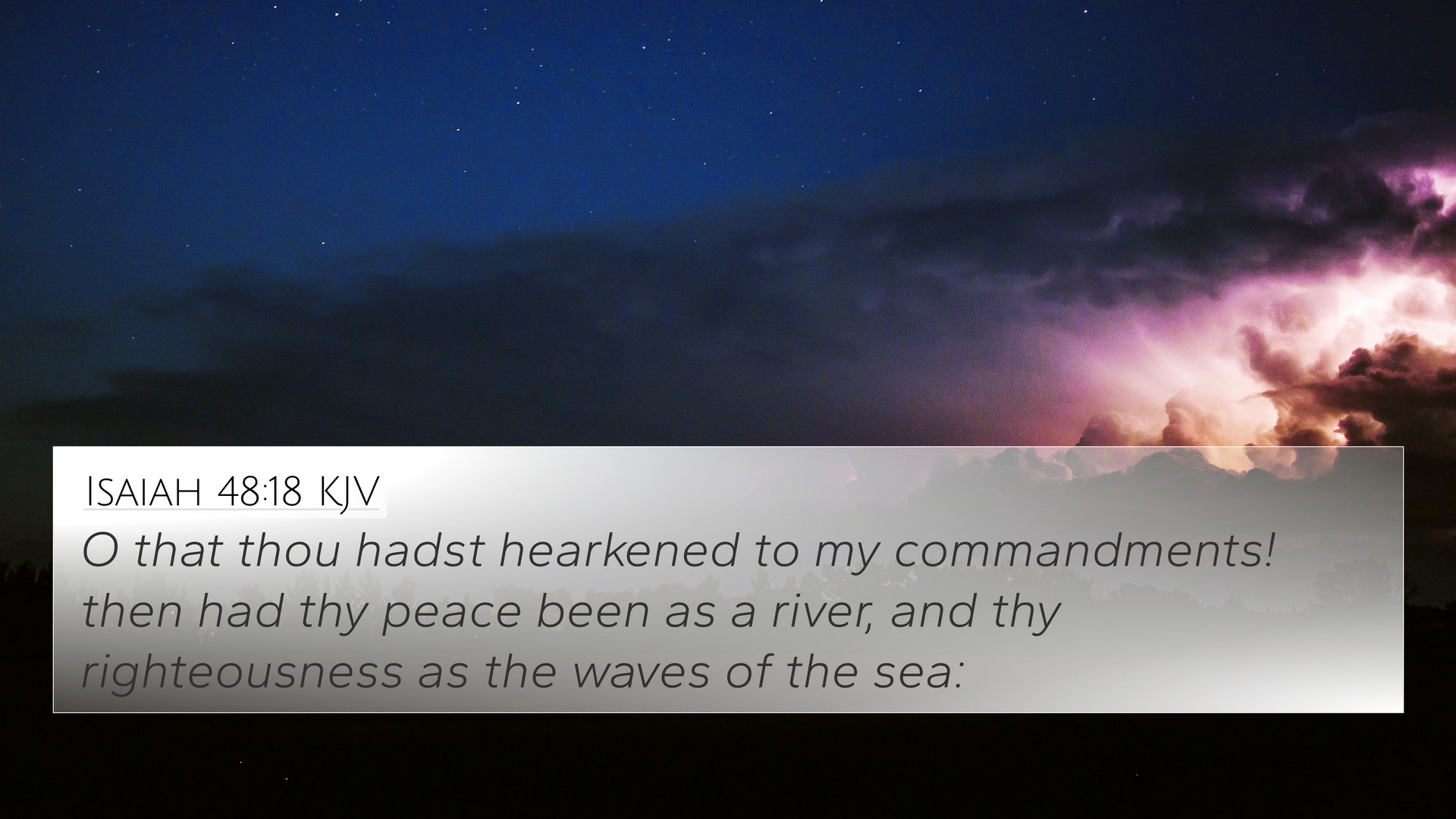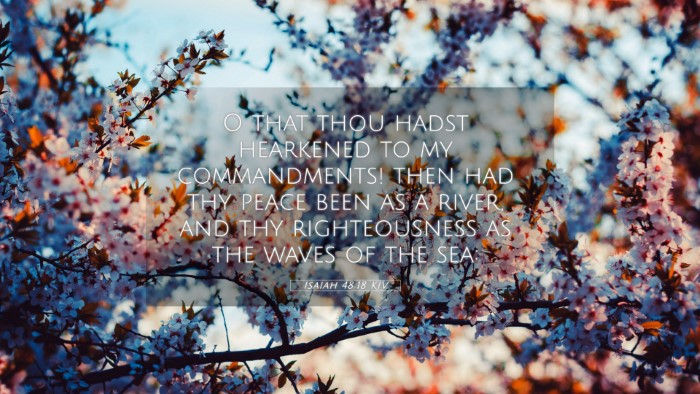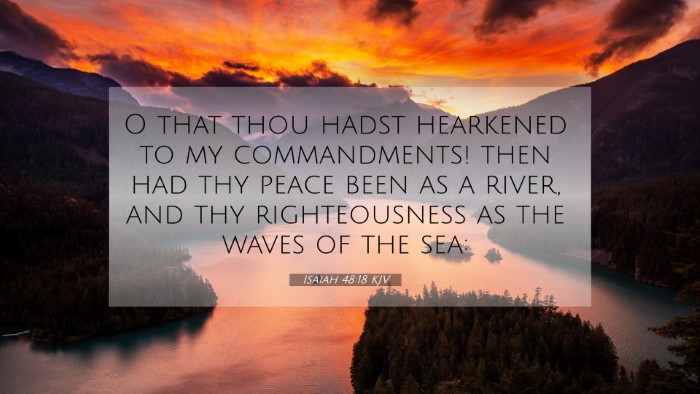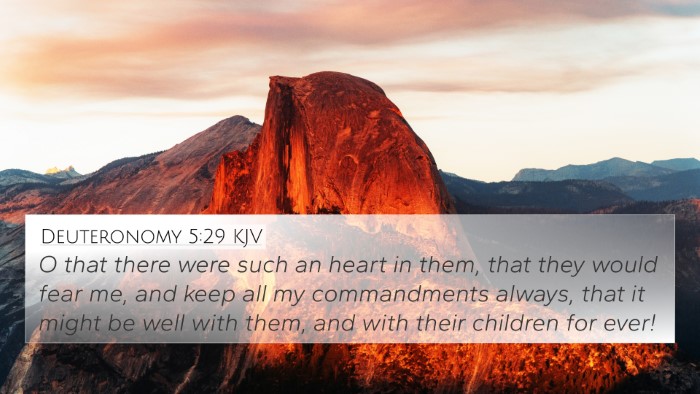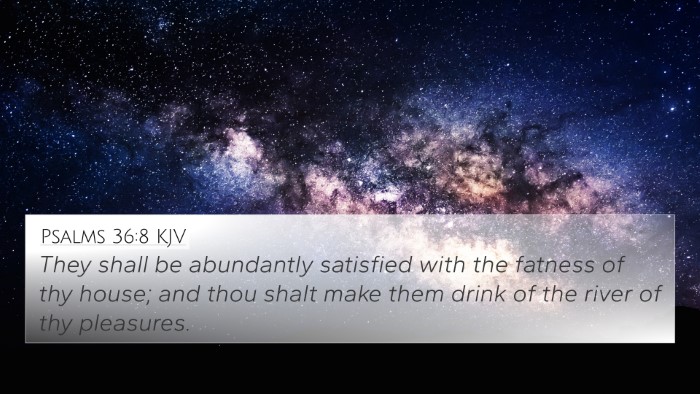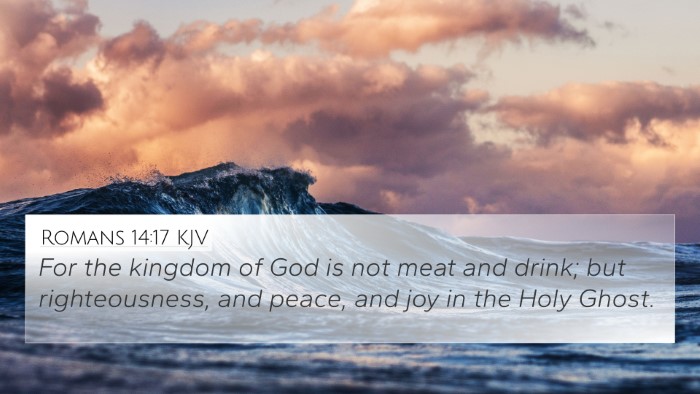Understanding Isaiah 48:18
Verse: "O that thou hadst hearkened to my commandments! then had thy peace been as a river, and thy righteousness as the waves of the sea." (Isaiah 48:18, KJV)
Isaiah 48:18 serves as a poignant reflection on obedience to God's commandments and the blessings that follow from adhering to His will. This verse expresses a desire for the people of Israel to listen to God's wisdom, suggesting that had they heeded His guidance, their peace would have been abundant, akin to a flowing river, and their righteousness would have been as constant and numerous as the waves of the sea.
Context and Analysis
This passage is set against the backdrop of Isaiah's prophetic ministry to Israel, emphasizing their turbulent history and the consequences of disobedience. In this context, the verse highlights the stark contrast between the ideal condition of peace and righteousness and the reality of their situation due to straying from God's commands.
Key Themes
- God's Desire for Obedience: The plea to "hearken" signifies the importance of being attentive to God's laws.
- Consequences of Disobedience: Highlighting that disobedience leads to unrest and lack of righteousness.
- Peace and Righteousness: Illustrating that true peace and righteousness are gifts from God, available through obedience.
Comparative Bible Verse Analysis
Thematic connections can be drawn between Isaiah 48:18 and various scriptures that speak about the blessings of obedience and the nature of God's character.
Bible Cross References
- Deuteronomy 30:15-16: This passage reflects on the choice between life and death, blessing and curse, emphasizing the importance of following God's commandments.
- Psalms 119:165: "Great peace have they which love thy law: and nothing shall offend them." This verse underscores the peace that comes from loving God's word.
- James 1:25: "But whoso looketh into the perfect law of liberty, and continueth therein, he being not a forgetful hearer, but a doer of the work, this man shall be blessed in his deed." This echoes the theme of receiving blessings through obedience.
- Isaiah 26:3: "Thou wilt keep him in perfect peace, whose mind is stayed on thee: because he trusteth in thee." It reinforces the idea that peace is rooted in trust and adherence to God.
- Philippians 4:7: "And the peace of God, which passeth all understanding, shall keep your hearts and minds through Christ Jesus." This New Testament reflection connects the peace promised in both Testaments.
- Romans 14:17: "For the kingdom of God is not meat and drink; but righteousness, and peace, and joy in the Holy Ghost." This highlights the inherent connection between righteousness and peace.
- John 14:27: "Peace I leave with you, my peace I give unto you: not as the world giveth, give I unto you." This speaks to the divine peace offered to believers through Jesus Christ.
- 1 Peter 3:10-11: "For he that will love life, and see good days, let him refrain his tongue from evil, and his lips that they speak no guile." A direct teaching on how righteousness leads to peace and long life.
- Proverbs 3:1-2: "My son, forget not my law; but let thine heart keep my commandments: For length of days, and long life, and peace, shall they add to thee." A promise of peace tied to obedience to God's law.
- Hebrews 12:11: "Now no chastening for the present seemeth to be joyous, but grievous: nevertheless, afterward it yieldeth the peaceable fruit of righteousness unto them which are exercised thereby." This teaches that righteousness emerges from discipline and obedience.
Using Bible Cross-References
When studying Isaiah 48:18, employing tools for Bible cross-referencing can enhance understanding:
- Bible Concordance: A robust concordance allows seekers to locate themes of peace and commandments throughout the scriptures.
- Bible Cross-Reference Guide: These guides help in identifying verses that relate to Isaiah 48:18, offering insights into similar themes and motifs.
- Bible Chain References: Chain references provide a way to trace related passages across both the Old and New Testaments.
- Comparative Bible Studies: Engaging in studies comparing the themes of peace and righteousness in Isaiah and the New Testament can provide deeper insights.
Conclusion
Isaiah 48:18 encapsulates a vital message about the relationship between obedience to God's commandments and the resultant peace and righteousness. By exploring cross-references and the thematic connections within scripture, individuals can gain a more profound understanding of God's desires for His people and the blessings that arise from faithfulness. Such explorations not only illuminate this particular verse but also enrich one's overall biblical knowledge and faith journey.
